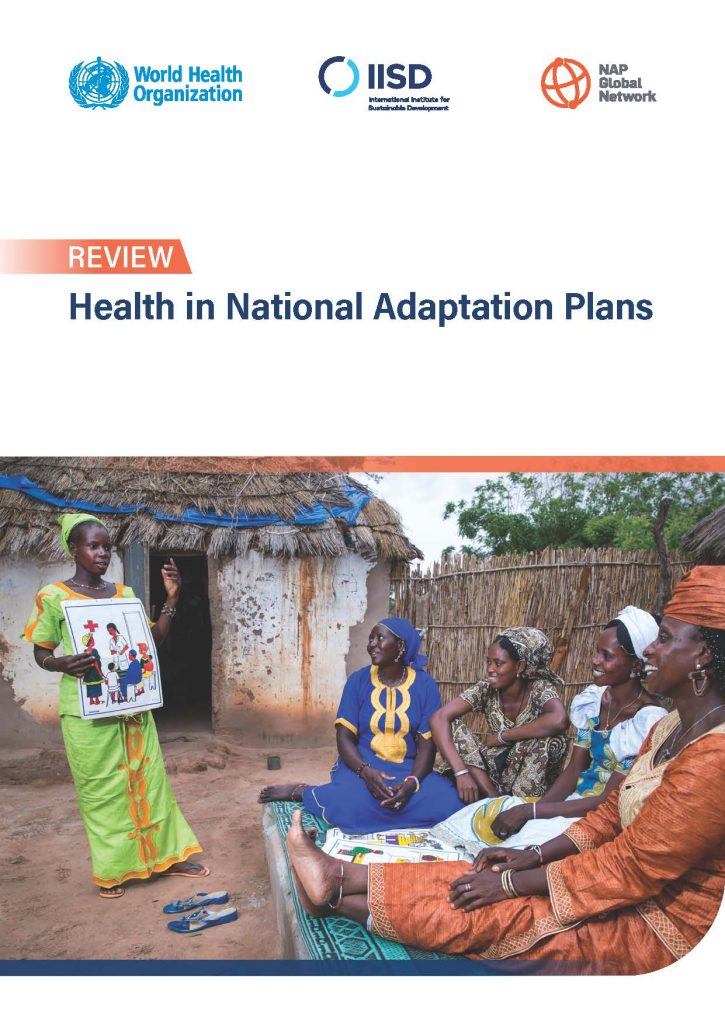
Review: Health in National Adaptation Plans (NAPs)
Climate change has a significant effect on health, whether through heat stress, increased spread of vector-borne diseases, or harm due to extreme weather events. The National Adaptation Plan (NAP) process helps countries address the impacts of climate change on their economies, communities, and ecosystems. This includes efforts to promote adaptation in the health sector.
Developed in collaboration with the World Health Organization (WHO), this report analyzes how health impacts are addressed in 19 NAP documents submitted to the United Nations Framework Convention on Climate Change (UNFCCC) as of December 2020. Furthermore, it identifies areas of opportunity for greater consideration of health in NAP processes, toward climate-resilient health systems.
Related Resources
- Virtual Learning Session | Climate Action, Gender Equality, and Resilient Health Systems: Integrated Approaches in National Adaptation Plan (NAP) Processes
- Sexual and Reproductive Health and Rights (SRHR) in National Adaptation Plan (NAP) Processes
- Interactive Webpage | Climate Change and Sexual & Reproductive Health & Rights (SRHR)
- World Health Organization (WHO) report: Quality Criteria for Health National Adaptation Plans
Publisher: WHO